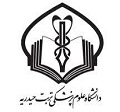(2020) The effect of epinephrine sprayed on the papilla on prevention of post– endoscopic retrograde cholangiopancreatography pancreatitis (PEP); a double-blind randomized control trial. Acta Medica Iranica. pp. 456-460. ISSN 00446025 (ISSN)
|
Text
document(1).pdf Download (568kB) |
Abstract
Acute pancreatitis is the most common and serious complication of Endoscopic Retrograde Cholangiopancreatography (ERCP). The use of effective medicines with low side effects should be considered in the process of RCP due to acute pancreatitis prevention. Therefore, we investigate the effects of epinephrine sprayed on the papilla in this study. This randomized clinical trial was performed on 343 patients referred to the ERCP Department of Imam Reza Hospital and Apadana Clinic, Mashhad, Iran. About 10 ml of diluted epinephrine (case group) or normal saline (control group) were sprayed on the papilla before diagnostic ERCP. Afterward, the two groups were assessed in terms of post-ERCP pancreatitis. The data were analyzed using Statistical Package for the Social Sciences (SPSS) software, version 20. The level of significance was considered to be 0.05. The overall results of this study indicated that post-ERCP pancreatitis occurred in 4.95 of the patients. Mild pancreatitis was diagnosed in five patients of the case group and three patients of the control group, respectively. Moderate pancreatitis was diagnosed in three patients of the case group and three patients of the control group. Only one patient in the case group and two patients in the control group were shown to have severe pancreatitis. Moreover, there was no significant difference between the incidence of pancreatitis between the two groups (P>0.05). With regard to the findings of this study, it appears that the topical application of epinephrine is not effective in preventing post-ERCP pancreatitis. © 2020 Tehran University of Medical Sciences. All rights reserved.
| Item Type: | Article |
|---|---|
| Keywords: | Pancreatitis, Epinephrine, Endoscopic retrograde cholangiopancreatography (ERCP) |
| Page Range: | pp. 456-460 |
| Journal or Publication Title: | Acta Medica Iranica |
| Volume: | 58 |
| Number: | 9 |
| ISSN: | 00446025 (ISSN) |
| Depositing User: | پریسا مرادی |
| URI: | http://eprints.thums.ac.ir/id/eprint/3159 |
Actions (login required)
 |
View Item |



